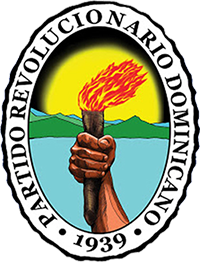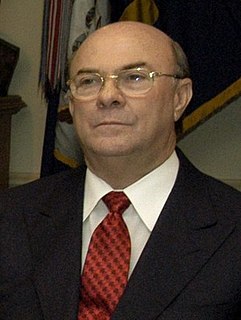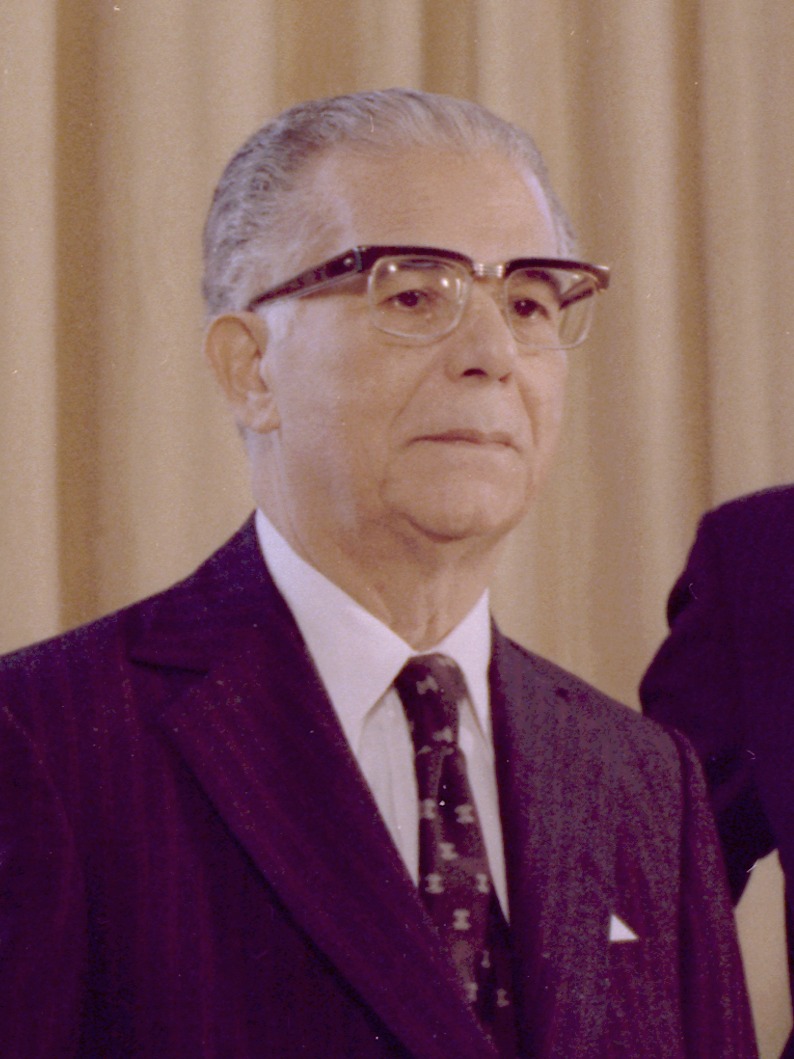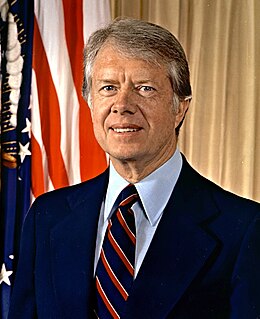
Presidential elections were held in the Dominican Republic on 16 May 2004. The result was a victory for former president Leonel Fernández, who defeated incumbent Hipólito Mejía. Voter turnout was 72.8%.

Silvestre Antonio Guzmán Fernández, best known as Antonio Guzmán, was a Dominican businessman and a politician. He was the 46th President of the Dominican Republic, from 1978 to 1982.

The Dominican Revolutionary Party is one of the main political parties of the Dominican Republic. Traditionally a left of the centre position and social democratic in name, the party has shifted since the 2000s toward the centre-right. The party’s distinctive color is white. Traditionally, the party has two presidents: the "Titular President" and the "Acting President" ; until 2010 the Presidents and the Secretary-General were proscribed to run for any elected office.
José Francisco Peña Gómez was a politician from the Dominican Republic. He was the leader of the Dominican Revolutionary Party (PRD), a three-time candidate for president of the Dominican Republic and former Mayor of Santo Domingo. He is considered, along with Joaquín Balaguer and Juan Bosch, as one of the most prominent Dominican political figures of the 20th century. His widow Peggy Cabral is currently one of the two co-Presidents of the PRD.

Legislative elections were held in El Salvador on 10 March 1974. The result was a victory for the National Conciliation Party, which won 36 of the 52 seats whilst the National Opposing Union won only 15. However, the election was marred by massive fraud and the official vote counts were not published.

The Social Democratic Institutional Bloc is a left-wing and social democratic political party of the Dominican Republic. It first contested national elections in 1994 when it was part of a Dominican Revolutionary Party-led alliance that won the Congressional elections. It was again part of the winning PRD bloc in the 1998 elections, before switching its allegiance to the Dominican Liberation Party for the 2002 elections. In the 2006 elections it was part of the victorious Progressive Bloc.
The People's Democratic Party is a minor political party in the Dominican Republic. It first contested national elections in 1974, when it provided the main opposition to the ruling Reformist Party due to the Dominican Revolutionary Party not contesting the elections. Its candidate, Luis Homero Lajara Burgos, received 15% of the vote in the presidential election, whilst the party won three seats in the House of Representatives. In 1978 many of the opposition parties returned to the electoral scene. Burgos received only 0.4% of the vote in the presidential election, whilst the party lost all three seats in the House of Representatives after a similar result in the Congressional elections.
The Christian People's Party is a minor political party in the Dominican Republic. It first contested national elections in 1986, when it was part of the Dominican Revolutionary Party-led alliance which lost to the Social Christian Reformist Party coalition. In the 1990 elections it formed an alliance with MIM, but received only 0.4% of the national vote and failed to win a seat. The party did not contest the 1994 elections, but was again part of a Dominican Revolutionary Party-led alliance in the 1998 elections. However, it switched its allegiance to the Social Christian Reformist Party for the 2002 elections. It had a candidate in the 2004 presidential elections, but they received less than 0.5% of the vote. In the 2006 elections it was part of the defeated Grand National Alliance. The party did not contest the 2010 elections.
The National Civic Veterans Party is a minor political party in the Dominican Republic. It first contested national elections in 1982 when it won 1.6% of the vote, but failed to win a seat. For the 1986 and 1990 elections it was part of the victorious Social Christian Reformist Party-led coalition. For the 1994 elections it changed its allegiance to the Dominican Revolutionary Party-led coalition that won the Congressional elections but lost the presidential vote. It contested the 2002 elections alone, but failed to win a seat after receiving only 0.5% of the vote. For the 2006 elections it was part of the defeated Grand National Alliance.

General elections were held in Mexico on 7 July 1952. The presidential elections were won by Adolfo Ruiz Cortines, who received 74.3% of the vote. In the Chamber of Deputies election, the Institutional Revolutionary Party won 151 of the 161 seats. These were the last presidential elections in Mexico in which women were not allowed to vote.

Presidential elections were held in the Dominican Republic on 16 May 2000. Hipólito Mejía of the Dominican Revolutionary Party (PRD) won the election, defeating Danilo Medina of the Dominican Liberation Party (PLD) and former president Joaquín Balaguer of the Social Christian Reformist Party (PRSC). Voter turnout was 76.1%.

General elections were held in the Dominican Republic on 16 May 1942. Rafael Trujillo was the only candidate in the presidential election and was elected unopposed, whilst his Dominican Party won every seat in the Congressional elections. They were the first elections in Dominican history in which women could vote.

General elections were held in the Dominican Republic on 16 May 1947. For the first time since the 1924 elections there was more than one presidential candidate. However, the incumbent Rafael Trujillo remained in power after receiving 93% of the vote. His Dominican Party won every seat in the Congressional elections.

General elections were held in the Dominican Republic on 1 June 1966. Following the 1963 coup which toppled elected president Juan Bosch of the Dominican Revolutionary Party, supporters of his constitutional reforms were excluded from the elections, although Bosch himself contested them. The result was a victory for Joaquín Balaguer of the Reformist Party, whilst his party also won the Congressional elections. Voter turnout was 75.6%.

General elections were held in the Dominican Republic on 16 May 1970. The main opposition party, the Dominican Revolutionary Party, did not contest the election, leaving only the ruling Reformist Party and some right-wing and centre-right parties. Incumbent Joaquín Balaguer won the presidential election, whilst his Reformist Party won the Congressional elections. Voter turnout was 63.5%.

General elections were held in the Dominican Republic on 16 May 1974. The main opposition party, the Dominican Revolutionary Party, did not contest the election, leaving only the ruling Reformist Party and some right-wing and centre-right parties. Incumbent Joaquín Balaguer won the presidential election, whilst his Reformist Party won the Congressional elections in alliance with the National Youth Movement. Voter turnout was 71.7%.

General elections were held in the Dominican Republic on 16 May 1986. Joaquín Balaguer of the Social Christian Reformist Party won the presidential election, whilst the PRSC-led alliance won the Congressional elections. Voter turnout was 72.2%.

General elections were held in the Dominican Republic on 16 May 1990. Following a long vote count, Joaquín Balaguer of the Social Christian Reformist Party was declared winner of the presidential election, whilst in the Congressional elections the PSRC received the most votes and won a majority in the Senate, although the Dominican Liberation Party won the most seats in the House of Representatives. Voter turnout was 59.9%.

Presidential elections were held in the Dominican Republic on 16 May 1996, with a second round on 30 June. Whilst José Francisco Peña Gómez won the most votes in the first round, he was defeated by Leonel Fernández in the second round, after the Social Christian Reformist Party, whose candidate had lost in the first round, declared their support for Fernández. Voter turnout was 78.6% in the first round and 76.8% in the second.

Miguel Octavio Vargas Maldonado is a civil engineer, businessman, and politician from the Dominican Republic. He is the chairman of the Dominican Revolutionary Party, a minority party allied with the PLD government and current Minister of Foreign Affairs.















